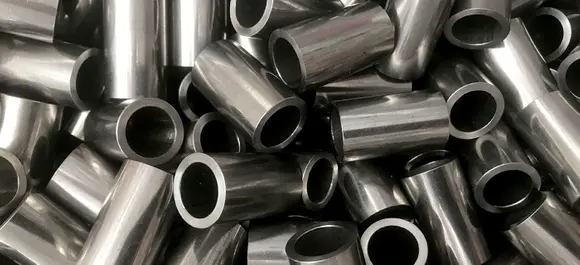Mobile:+86-311-808-126-83
Email:info@ydcastings.com
metal casting sand
The Essence of Metal Casting Sand Types, Applications, and Considerations
Metal casting is a crucial process in manufacturing that involves shaping molten metal into desired forms. One of the primary components that significantly influence the quality and efficiency of this process is metal casting sand. This article delves into the various types of casting sands, their characteristics, applications, and factors to consider during the selection process.
Understanding Metal Casting Sand
Metal casting sand, often referred to as foundry sand, is a critical material used in the production of metal castings. It provides a mold for pouring molten metal, creating a cavity that hardens to form the finished product. The effectiveness of casting sand depends on its composition, grain size, shape, and bonding properties. Commonly used types of sand in metal casting include silica sand, zircon sand, olivine sand, and chromite sand.
Types of Casting Sand
1. Silica Sand Silica sand is the most widely used casting sand due to its availability and favorable properties. Composed primarily of silicon dioxide, it can endure high temperatures and provides excellent mold strength. Its fine grain size allows for detailed surface finishes, making it ideal for intricate designs.
2. Zircon Sand Zircon sand, derived from zirconium silicate, is known for its high thermal stability and low thermal expansion. This type of sand is more expensive than silica but is often chosen for high-precision castings, especially in industries like aerospace where accuracy is paramount.
3. Olivine Sand Olivine sand is a natural magnesium iron silicate and is becoming increasingly popular due to its environmentally friendly properties. Unlike silica, olivine sand has lower thermal expansion, which helps prevent casting defects and supports the production of high-quality metal products.
4. Chromite Sand Ideal for heavy steel castings, chromite sand provides superior thermal stability and excellent resistance to metal penetration. It is often utilized in demanding applications, such as those in the automotive and heavy machinery industries.
Applications of Casting Sand
metal casting sand

Casting sands are employed across various industries, including automotive, aerospace, defense, and construction. In the automotive industry, sand casting is used for producing engine blocks, transmission cases, and other critical components. The aerospace sector relies on high-precision casting for parts that require tight tolerances and exceptional strength.
In addition to traditional metal casting, advancements in 3D printing technology have led to the use of casting sands in additive manufacturing processes, enhancing design versatility and production efficiency.
Factors to Consider in Selecting Casting Sand
When choosing the appropriate casting sand, several factors must be assessed
1. Grain Size and Shape The grain size of the sand affects the mold's surface finish and the casting's final quality. A finer grain will provide improved detail but may lead to issues with sand blow or erosion.
2. Thermal Properties The thermal stability of the sand is crucial for withstanding the high temperatures of molten metal. This prevents deformation during the pouring process.
3. Reusability Foundry sands, particularly silica and olivine types, are often recyclable. Evaluating the reusability helps reduce operational costs and environmental impact.
4. Cost and Availability The economic feasibility of using specific types of sand can significantly influence material selection, especially for large-scale manufacturing operations.
Conclusion
In conclusion, metal casting sand plays an indispensable role in the casting process, impacting both the quality and efficiency of the final product. Understanding the different types of casting sands, their applications, and the critical factors in selecting the right one can enhance the productivity of foundries and manufacturers. As technology evolves, the importance of innovative and efficient casting sands will continue to grow, paving the way for advancements in metal casting techniques.
-
Why Should You Invest in Superior Pump Castings for Your Equipment?NewsJun.09,2025
-
Unlock Performance Potential with Stainless Impellers and Aluminum End CapsNewsJun.09,2025
-
Revolutionize Your Machinery with Superior Cast Iron and Aluminum ComponentsNewsJun.09,2025
-
Revolutionize Fluid Dynamics with Premium Pump ComponentsNewsJun.09,2025
-
Optimizing Industrial Systems with Essential Valve ComponentsNewsJun.09,2025
-
Elevate Grid Efficiency with High-Precision Power CastingsNewsJun.09,2025











